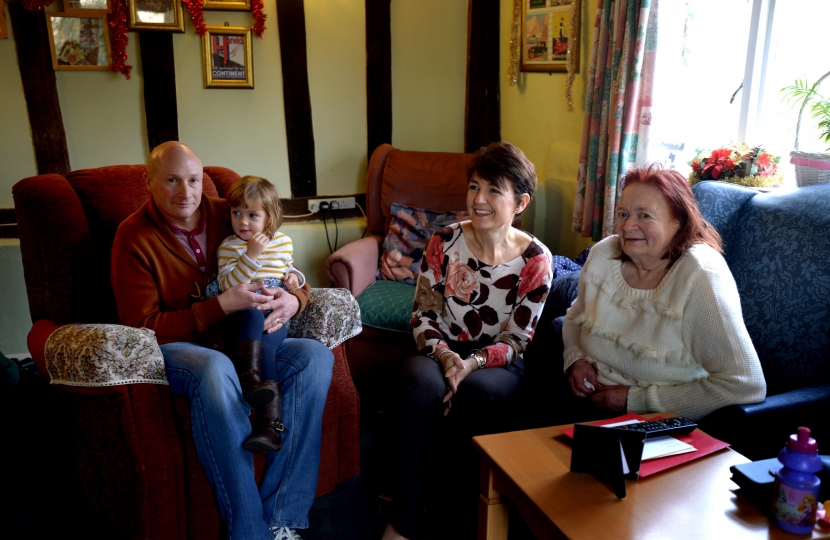
Ever since I arrived in Parliament, I have been a passionate advocate and promoter of life-long learning; whether upskilling, reskilling or just encouraging new learning opportunities. It has always been a matter close to my heart, for I know it is women with children who, still, are most likely to fall behind in employment and career opportunities.
However, just this week I helped launch a different, yet equally important, opportunity for life-long learning; the Senior Leader Master’s Degree Apprenticeship. This new scheme is designed to support leadership development in business, by furthering the strategic leadership skills of business leaders.
As it stands, the UK boasts a thriving business industry so much so that Britain is the number one destination in Europe for foreign direct investment, having attracted £197 billion of foreign money just last year. Despite this, a 2016 study found that poor leadership and management, costs our economy £84 billion a year in reduced productivity.
It is clear that poor leadership, whether in the voluntary, private or public sector, hinders productivity as much as hours, wages and lack of training. In light of this, the aim of this degree apprenticeship scheme is to embed good business practice as it recognises experience as equal to theoretical learning.
Furthermore, by supporting business leaders to improve their skills, this can boost business confidence, ensure positive practice is passed down through an organisation, and raise standards across our business sector. This, if the UK wants to continue to attract investment and opportunities, particularly after Brexit, is crucial.
Nevertheless, the drive from this Government towards apprenticeships and the ability to ‘earn and learn’, is one of our proudest achievements and certainly one which I am keen to celebrate. On target to achieve 3 million apprenticeships by 2020, we are clearly delivering the breadth to make apprenticeships succeed. Now we must focus on the depth.
Speaking at the launch this week, the conversation around apprenticeships has shifted; not just in providing an entry point into a particular sector or skill, but to now utilising the opportunities of apprenticeship learning.
In particular, the need for upskilling is more immediate than ever, with two thirds of the workforce, now aged between 30 and 60 years old, they are 60% less likely to take on part-time learning. Without returnship and advancement opportunities from adult apprenticeships, the fast developing workplace risks overtaking the ability of our workforce to keep pace.
As it is, this Government is already intently focused on ensuring parity between higher education degrees and choosing to complete an apprenticeship. For it is widely accepted that the future of our economy, as a result of automation and technology, will be vastly different from today.
Future generations are more likely to have three or more careers over their lifetime and require the means and the skills to adapt their employment. Therefore promoting and building in the virtue of life-long learning into our workforce, starting now, can begin to deliver a workforce ready to adapt and change to the changing needs of our economy.
I would go further and argue that parents and those who take on unpaid care roles to look after a friend or family member, return to the workplace with an even wider skill-set, and they should be able to use this ‘capital’ to advance their working life.
This, I am disappointed to say, is not something our economy has not adapted well enough to yet, and we know that it is harder for women to re-enter the workplace and achieve equal pay after, for instance, having a child.
However, by using the opportunities of life-long learning we can re-balance the needs of the workplace and deliver the economy of the future. Seeing learning and upskilling as part of our natural working life we can propel the UK forward and give each and every individual, new and exciting opportunities for the future.
Published in the East Anglian Daily Times